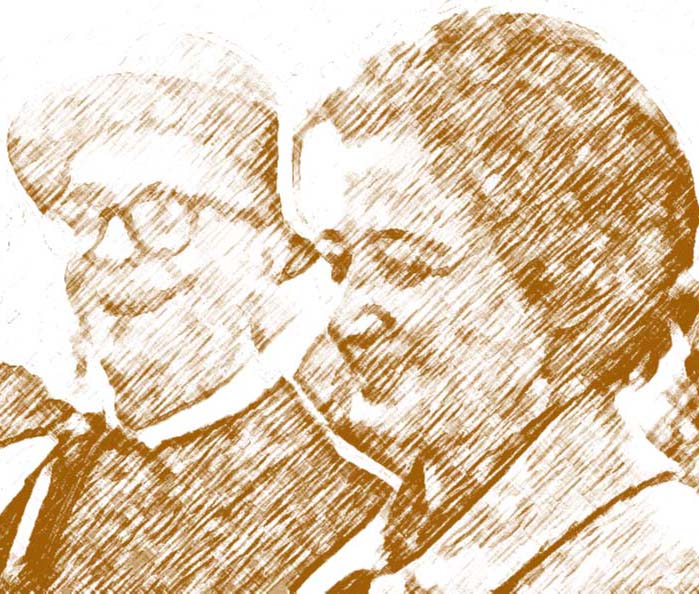The discovery that made me a new man
We are reviving the memory of the encounter between Igino Giordani and Chiara Lubich, that occurred on 17 September 1948, through the narration he himself traced in his autobiography: “Memories of a naive Christian.”
The young lady was speaking and I was sure I was about to hear a sentimental propaganda of some charitable utopia. And instead, with the first words I sensed something new. There was an unusual tone of deep and certain conviction that came from a supernatural sentiment. And so, suddenly my curiosity was awakened and a fire broke out in me. After half an hour when she had finished her speech, I was taken up by an enchanted atmosphere. It was the voice which, without realizing it, I had long waited to hear.
She was placing sanctity at the reach of all, removing the grids that separate the lay world from mystical life. She was baring all the treasures of a castle to which only a few were admitted. She brought us closer to God, and made him appear like a Father, brother, and friend, in the midst of humanity.
I wanted to know more, and get to know about the life of the Hearth of unity as it was called – and I recognised in that experience, the actuation of the burning desire of St. John Chrysostom: that the lay should live like monks, except for celibacy. I had long cultivated that desire in me.
Inside me those pieces of culture, juxtaposed, started to move and come to life, fitting together to form a living body, pervaded by generous blood. So it occurred that the idea of God had given way to the love of God, the ideal image of the living God. In Chiara I had found a new life which did not speak of God, but which spoke with God: daughter who, in love, dialogued with the Father.
I was receiving a sort of revelation which produced a new conversion in me, which set me before a new, infinite horizon between heaven and earth, urging me to start walking again. And at every step the landscape became increasingly attractive.
Upon reviewing the fact in a critical way, I realised that I had not discovered anything new. In the life system that was opening out to my soul, I re-encountered the names, figures, doctrines I had loved. All my studies, ideals, and the same vicissitudes of my life appeared to be all directed towards this goal. Nothing was new; and yet everything was new. The elements of my cultural and spiritual education started to arrange themselves according to God’s plan. They were being set in the right place. What appeared to me, in the hagiography resulting as a struggling ascent reserved for rare seekers, was becoming a common heritage, and I understood why Jesus had invited all his disciples to become perfect like the Father, perfect like God!
All is old and all is new.
A collective sanctity was coming to the fore, socialised (to use two words which later the Second Vatican would popularize), removed from individualism which convinced each one to sanctify oneself for oneself, meticulously cultivating with a depthless analysis, one’s own soul instead of losing it. In short, asceticism was resolved in a universal adventure of divine life: love generates light.
All seemed to be enlightened. Suffering took on a salvific significance, and was resolved in love. Life appeared as an adorable design of God’s will and each moment became full and had its beauty. Nature and history opened out in rich wefts of harmony and wisdom. And to live this new life, to be reborn in God, I did not have to renounce my doctrines: I only had to set them in the flame of charity, and be vivified. Through the brother, I started to live God. All of existence became an adventure, lived consciously in union with the Creator who is life. Mary shone with a new beauty: the saints became a part of the family, paradise became a common home.
This was the discovery, the experience. It made me a new man.
Excerpt from: Igino Giordani, Memories of a naive Christian, New City, 1994, p.149-154




